Financial Times – March 13,

These are the most popular stories from the Financial Times. These stories have not been verified and we cannot vouch their accuracy. Intel named Lip-Bu Tan, a former board member who has worked in the chip industry for many years, as its new CEO on Wednesday. Pat Gelsinger was ousted by the board of the struggling U.S.-based chipmaker back in December. Keir starmer, the British Prime Minister, will pledge on Thursday to reshape government services by tackling a "cottage-industry of checkers and blocks" and using AI to achieve efficiencies. However Downing Street has insisted that he won't take a "chainsaw" to state. The U.S.
Sources: Validus Energy will buy natural gas producer, 89 Energy III, for $850 Million.
Sources familiar with the deal said that Validus Energy, a privately owned U.S. gas and oil producer, has agreed to purchase 89 Energy III, a rival company, for $850 million including debt. According to sources, the deal will add more than 25,000 barrels equivalent to oil per day to Validus’s growing footprint in Oklahoma's Anadarko Shale Basin, making it one of the biggest private players in U.S. Mid-Continent region oil. According to its website, 89 Energy III produces 70% gas. Kayne Anderson announced the formation of this company in May 2021, after a merger between three Mid-Continent oil and gas producers.
Sources say that Citizen Energy, a producer of shale oil and gas, will buy Validus in a deal worth more than $2 billion.
According to sources familiar with the situation, Validus Energy, a privately held oil and natural gas producer, has agreed to purchase Citizen Energy, a rival company, for over $2 billion including debt. The U.S. Shale industry has seen a record wave of consolidation. After the COVID, oil prices surged and buyers were eager to secure the best drilling locations. Sources who requested anonymity because the talks are confidential said that Validus won the auction for Tulsa's Citizen Energy. Sources said that Citizen…
Markets: Oil Rises as Inventories Expected to Fall

Oil rose on Tuesday on expectation of a continuous decline in U.S. oil inventories, recouping some losses from the previous session due to lingering concern over rising cases of the Delta coronavirus variant.Brent, the international benchmark for oil prices, rose 60 cents, or 0.8%, to $73.49 a barrel, at 0905 GMT.U.S. West Texas Intermediate (WTI) crude was up 63 cents, or 0.9%, at $71.89 a barrel.Both markets dropped more than 3% on Monday."Some market participants see Monday’s price set-back as a bit exaggerated…
When Oil Became Waste
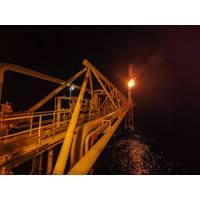
A week of turmoil for crude, and more pain to comeThe magnitude of how damaged the energy industry is came into full view on April 20 when the benchmark price of U.S. oil futures, which had never dropped below $10 a barrel in its nearly 40-year history, plunged to a previously unthinkable minus $38 a barrel.In just a few months, the coronavirus pandemic has destroyed so much fuel demand as billions of people curtail travel that it has done what financial crashes, recessions and wars had failed to ever do…
Investors Brace for Poor US Shale Earnings
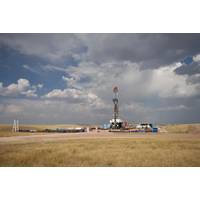
Investors are bracing for weaker results from U.S. shale players in coming days as lower oil and natural gas prices and cost-cutting measures have weighed on third-quarter operations.Major shale producers ConocoPhillips and Concho Resources this week kick off quarterly earnings reports for a group whipsawed this year by volatile pricing and investor demands for improved returns. Oil and gas producers have cut drilling and slashed jobs amid worries over pricing outlooks.U.S. oil prices are down 17% and natural gas is down about 31% from a year ago, undercutting production increases.
Continental Expects Low Oilfield Service Costs in 2019
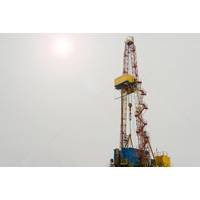
U.S. shale producer Continental Resources expects oilfield services costs to remain low in 2019 as companies that provide drilling and completion work continue to face pressure from softer oil prices, executives said during a company presentation on Tuesday.Continental is now operating 12 rigs for its SpringBoard development in Oklahoma, down from 14 in the fourth quarter of last year due to improved efficiencies, company executives said while providing an investor update.Oil prices fell sharply in the fourth quarter last year amid concerns of oversupply and slowing economic growth…
US Oil Drillers Cut Rigs for First Week in Four
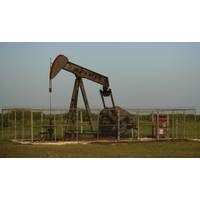
The U.S. oil drilling rig count declined this week for the first time in four weeks, although the rig count held close to its highest in over three years as production surges to record highs and some companies forecast even higher output this year.Drillers cut one oil rig in the week to Nov. 2, bringing the total count down to 874, General Electric Co's Baker Hughes energy services firm said in its closely followed report on Friday.The U.S. rig count, an early indicator of future output, is higher than a…
US Shale CEOs Meet with Saudi Aramco Board
Two of the U.S. shale industry's most prominent executives met with the Saudi Aramco board of directors in Houston on Wednesday.Mark Papa, chief executive of Centennial Resource Development Inc, and Harold Hamm, CEO of Continental Resources Inc, spoke at a regularly scheduled meeting of the directors of the world's largest oil producer.They declined to comment on the meeting.(Reporting by Ernest Scheyder; editing by Jonathan Oatis)
US Oil Industry Set to Break Record, Upend Global Trade

Surging shale production is poised to push U.S. oil output to more than 10 million barrels per day - toppling a record set in 1970 and crossing a threshold few could have imagined even a decade ago. And this new record, expected within days, likely won't last long. The U.S. government forecasts that the nation's production will climb to 11 million barrels a day by late 2019, a level that would rival Russia, the world's top producer. The economic and political impacts of soaring U.S. output are breathtaking…
Rebounding US Shale Poses Problem for OPEC
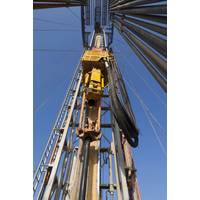
U.S. crude oil prices have risen above $60 per barrel which should accelerate shale drilling and production in the next few months, provided the price increase is sustained. U.S. crude futures are trading over $60 for all delivery months between February and August 2018, an increase of about 40 percent since the middle of 2017 (http://tmsnrt.rs/2CW5DIt). And the futures strip for 2019, the benchmark against which U.S. shale producers can execute hedges for next year's output, is trading over $56, up almost 20 percent on the last six months.
Unafraid Investors Pour Cash into U.S. Shale
Financiers keep pouring cash into the shale oil sector, providing producers with a path to keep U.S. output rising through the middle of the next decade. The United States is on track to deliver up to 80 percent of the world's oil production gains through 2025, the International Energy Agency estimates, increases fueled in part by easy access to capital. Rising U.S. production is undermining OPEC's attempts to curb global supply and boost prices, forcing the oil cartel to continue restraining output through the end of 2018.
US Shale Producers Promise Higher Output and Returns

U.S. shale producers are telling investors impatient for better returns that they can keep boosting oil output aggressively and do so while still making money for shareholders. Investors have pushed top U.S. shale companies to focus on returns, rather than higher output, a move that threatened to slow the breakneck growth in supply sparked by the shale revolution in the world's top oil consumer. For the Organization of the Petroleum Exporting Countries, slower shale production gains would have been welcome. The cartel this year put caps on its members' production to end a supply glut and boost oil prices, only to find U.S.
WTI Discount to Brent Reflects Logistics Constraints
Even as crude stocks decline elsewhere in the United States, stocks are rising in the Midwest, especially around the delivery point for the New York Mercantile Exchange’s light sweet crude contract at Cushing in Oklahoma. Crude stocks at Cushing hit a low of 56 million barrels on July 28 but have since risen by almost 7 million barrels, according to the U.S. Energy Information Administration (EIA). In the rest of country, commercial crude stocks stood at 426 million barrels on July 28 but have since fallen by almost 24 million (“Weekly Petroleum Status Report”, EIA, Oct. 4). Stocks on the U.S.
Who is Responsible for WTI Weakness?

The U.S. Energy Information Administration (EIA) is distorting oil prices by being far too optimistic in its forecasts for U.S. production, according to Harold Hamm, the chief executive of Continental Resources. Hamm, who also chairs the Domestic Energy Producers Alliance (DEPA), a lobbying group, blames EIA for both the outright decline in U.S. oil prices and their underperformance compared with Brent since June. Hamm faults EIA for being too optimistic about U.S. production, creating an impression there will be surplus of crude and depressing futures prices for West Texas Intermediate (WTI). EIA currently forecasts U.S.
US Shale Sector at Critical Price Threshold: Kemp

Forward U.S. oil prices for 2018 have climbed back above $50 per barrel, a level that should be high enough to stabilise drilling activity over the next two months. But if prices continue their current upward trend, shale firms will almost certainly interpret that as a sign to increase output and begin ramping up their drilling programmes again. Shale drilling has proved very sensitive to changes in the value of West Texas Intermediate (WTI) crude, especially the forward prices shale firms rely on to hedge production and reduce their risks.
Pullback in Fracking Sand Use Pressures Producers
U.S. shale oil companies are pulling back on the amount of sand they use to hydraulically fracture new wells, responding to rising prices of the material that are driving up costs. Investors worry a slowdown in sand use, combined with new mining capacity coming online, could lead to a glut of the material and bring down prices. The worries have pressured shares of sand companies. Sand prices soared in the last year as oil companies ramped up shale drilling and production. But with crude prices below where they started the year…
US Drillers Add Oil Rigs for Second Week in Three

U.S. energy companies added oil rigs for a second time in the last three weeks, extending a 15-month drilling recovery, but the pace of additions has slowed in recent months as firms cut spending plans in reaction to declining crude prices. Drillers added 3 oil rigs in the week to Aug. 11 bringing the total count up to 768, the most since April 2015. General Electric Co's Baker Hughes energy services firm said in its closely followed report on Friday. That compares with 396 active oil rigs during the same week a year ago. Drillers have added rigs in 56 of the past 63 weeks since the start of June 2016.
US Shale Breakeven Price Revealed
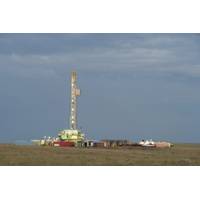
U.S. shale producers need a WTI oil price around $50 per barrel to break even, according to an analysis of financial statements for the second quarter. Fifteen of the largest shale oil and gas producers reported total net losses of $470 million for the three months between April and June when benchmark WTI prices averaged $48. Total losses were down from $3.7 billion in the first three months of the year and $7.4 billion in the same period in 2016, according to earnings statements published in the last week.
U.S. Shale Breakeven Price Pegged at $50
U.S. shale producers need a WTI oil price around $50 per barrel to break even, according to an analysis of financial statements for the second quarter. Fifteen of the largest shale oil and gas producers reported total net losses of $470 million for the three months between April and June when benchmark WTI prices averaged $48. Total losses were down from $3.7 billion in the first three months of the year and $7.4 billion in the same period in 2016, according to earnings statements published in the last week (http://tmsnrt.rs/2ftmgnd).
